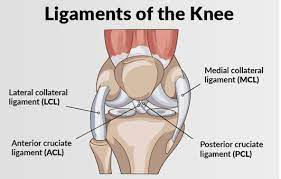Our Exclusives
- Advance Physiotherapy
- Quick Pain Relief
- Experienced Team Of Specialists
- Latest Treatment And Technology
- Accurate Rehabilitation
Treatments
Sports Physiotherapy

Ortho Physiotherapy

It focuses on treating conditions that involve pain or discomfort around joints, muscle bones, ligaments, and tendons.
Neuro Physiotherapy

This is an area of physiotherapy that focuses on conditions related to brain stroke, brain injury causing paralysis, age-related urinary incontinence, complaints of loss of sensation, tremor, and uncoordinated movement.
The physiotherapist here devises a plan to help the patients improve their symptoms and lead a better quality of life.
Cardio Physiotherapy

This is a branch of physiotherapy that focuses on the prevention and rehabilitation of patients with diseases or conditions related to the heart and lungs. They may have shortness of breath, cough, or reduced ability to exercise.
The physiotherapists at AFcare provide advice on promoting a healthy lifestyle to improve the quality of living.
Community Physiotherapy

Cupping Therapy

In this therapy special cups are placed on your skin to create suction causing the skin to rise and redden helping in treating pain, and inflammation, increasing blood flow, and in turn causing muscle relaxation.
Deep Tissue Release

Neck Pain

Physiotherapy is one of the common treatments to treat neck pain caused due to varied reasons like irregular sleeping posture, spasms, tightness of muscles, and underlying conditions like spondylosis.
Ligament Injury

This is mainly caused due to an injury to the ligament due to an extreme motion like twisting of a joint leading to the extreme pain, swelling, and restricted movement.
We at AFCare use various combinations of modalities like ultrasound, tens taping along with exercises to cure you of that injury.
Frozen Shoulder

Sciatica Care

Sciatica is mainly caused by the nerve getting impinged in between the muscles causing pain, numbness, and tingling along the legs. the physiotherapists here use a combination of various techniques and modalities to relieve the nerve pain and lead you to walk freely without any discomfort.
Ankle Sprains

Arthritis Care

Frequently Asked Questions
Yes definitely, the medical science specialty of physiotherapy focuses on the reduction of pain and the restoration of movement. Physiotherapy treatment modules are based on scientific, evidence-based practices. Physiotherapy is highly effective in treating a wide range of conditions without the use of invasive surgeries or harmful painkillers.
You no longer need a doctor’s referral before seeing a physiotherapist. It is possible that your insurance company may require you to see a physician and obtain a referral before seeing a physio. However, in the majority of cases, people are free to book an appointment directly without a note from their doctor. You can call us on 7208027271 for booking an appointment with us.
Physiotherapy shouldn’t hurt and is completely safe. Physiotherapy often activates deep tissue, and it’s quite possible that there will be some soreness after a treatment session. Stretching and deep tissue work will often cause temporary soreness. It’s important to note that sometimes getting better requires some hard work. We at AFcare do take utmost care to make your physiotherapy sessions painless and pleasant.
Physiotherapy is designed to treat you as an individual. A full assessment of your condition will take place on your first appointment. The physio will do a physical assessment that will include tests on strength, range of motion, balance, and restrictions. The physiotherapist will also review all relevant medical reports. Together with the patient, the physiotherapist will set realistic and achievable goals. We at AFCare will begin by making a full treatment plan for your rehabilitation program and make a schedule of appointments.
Physiotherapy is not like a personal trainer. Physiotherapists have six years of rigorous medical studies, intense hospital-based training, and a lifetime of continuing education. They are experts in movement and function as it relates to specific medical conditions. Personal trainers have a much less rigorous educational requirement, usually just a certificate. They focus on overall strength and conditioning not how it relates to a specific medical condition. Personal trainers often work with a physiotherapist, under their guidance to supplement the treatments of a physiotherapist.
It’s understandable that if we are in pain, we want to be cured right away. Many people seek out remedies that offer quick relief, and many people turn to medications that promise to eliminate their pain. These cures merely mask the pain and often force us into a continuous cycle of pain and drug use. Physiotherapy goes to the core underlying cause of your pain. Physiotherapy seeks a long-term solution to reducing pain naturally and permanently. However, in some cases, a physiotherapist can offer immediate relief from pain.
In most cases, your physiotherapist will give you exercises for you to do on your own in between your physiotherapy sessions. However, your physiotherapy sessions are important to assess your progress constantly. One of the most common mistakes people make is to refrain from doing their exercises because they either no longer have pain or see little improvement.
I researched my condition on the internet and found some youtube videos that promise to eliminate my pain. Should I do these exercises?
Not only is this not advisable it could be quite dangerous. Without a proper assessment, you will not know the true cause of your pain. The origin of your pain or restricted motion might be caused by something completely unrelated to the area you feel the pain or the restriction. For example, a misaligned hip can cause a sore knee, and a weak lower back can cause a sore shoulder. Youtube is an excellent resource if you plan on fixing your car or house, but it is no substitute when it comes to physiotherapy.
Every situation is different. Some patients need no more than two or three visits to a physiotherapist. However, some patients such as stroke patients or those who have an acquired brain injury may see a physiotherapist for some years. The goal of every physiotherapist should be to eliminate the need for a patient to see them. This means they need to provide professional and effective treatment that ensures a long-term solution to a patient’s problem.
Physiotherapists treat a wide variety of issues. Some physiotherapists specialize in certain areas while others see a broad range of conditions. Knee, back, shoulder, and neck soreness remain the most common treatments that a physiotherapist will see. Physiotherapists also work with stroke survivors, acquired brain injuries, post-operative orthopedic patients, and sports injuries.
The list of treatments that a physiotherapist can treat is almost endless. Here is just a small list of conditions and ailments that physiotherapy can benefit from.
Neurological; acquired brain injuries, concussions, Parkinsons, muscular sclerosis, spinal cord injuries, stroke survivors.
Musculoskeletal; Back, neck, shoulder, knee.
Repetitive strain; Carpal tunnel, tendinitis, tennis, and golfer’s elbow.
Postoperative; Total knee replacement, total hip replacement, back surgery, heart surgery.
Pediatric; Movement disorders, developmental delays, muscular dystrophy, cerebral palsy, patellofemoral syndrome.
Sports injuries; ACL, MCL, knee, back, concussions.
Women’s health; Pregnancy issues, urinary incontinence, and lymphedema.

